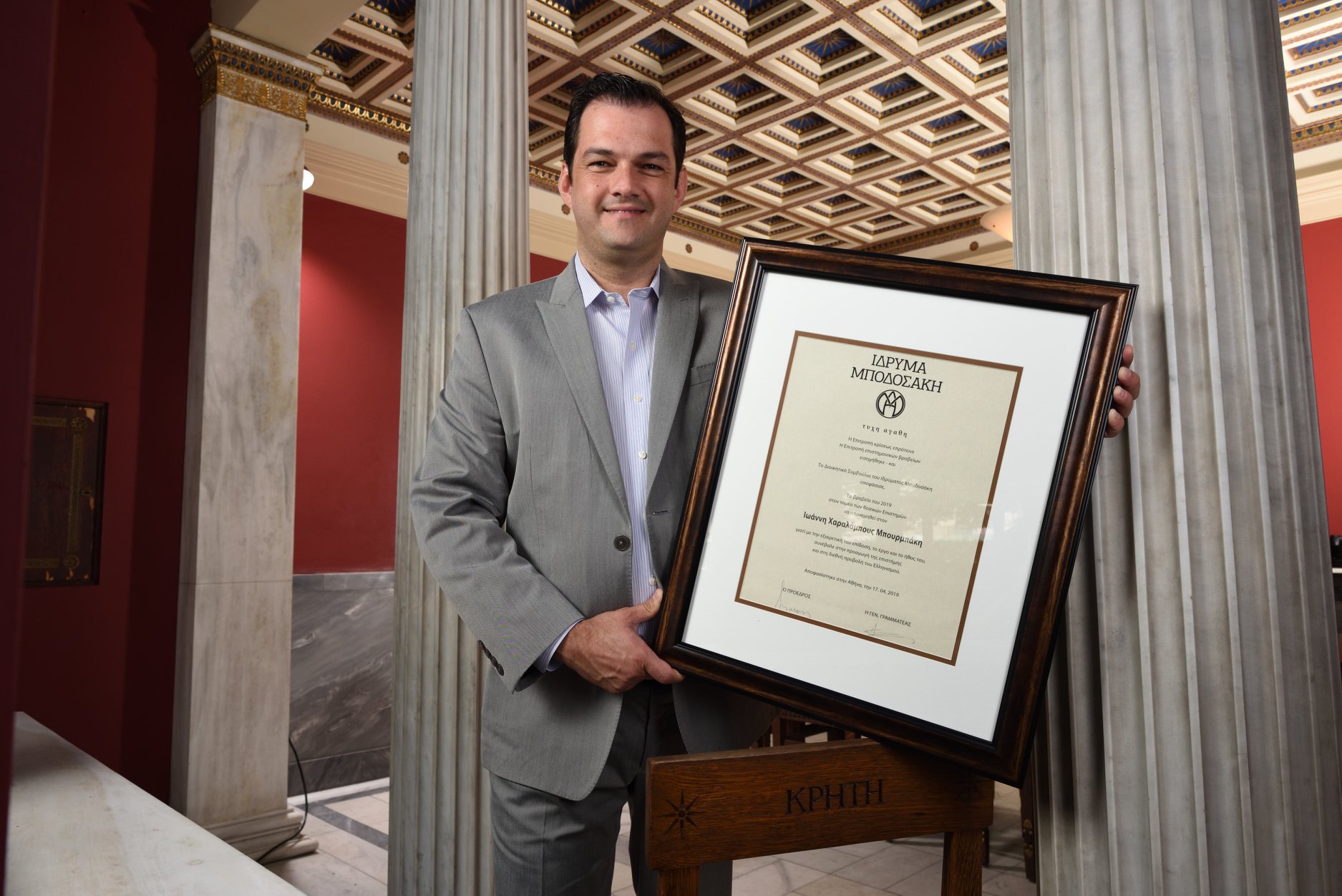Standing out among Greeks worldwide

in Pitt's Cathedral of Learning. Photo courtesy Swanson School of Engineering
Yanni Mpourmpakis is one of the Center for Research Computing’s most prolific collaborators, publishing 12 papers acknowledging CRC during 2018 alone. Mpourmpakis’ Computer-Aided Nano and Energy Lab (CANELa) relies on CRC resources in developing computational methods and simulations to design nanomaterials with tailored applications.
Research by CANELa is impressive not only its productivity, but in its range – their 2018-2019 work includes research on safe storage and disposal of radioactive waste, formation and stability of nanoparticles, formation of kidney stones, and creation of building blocks for plastics.
Mpourmpakis, Bicentennial Alumni faculty fellow and associate professor of chemical and petroleum engineering at the Swanson School of Engineering, has received many distinctions, among them a prestigious National Science Foundation CAREER Award and recognition as an American Chemical Society Emerging Investigator.
The most recent recognition is close to his heart – the Bodossaki Foundation Distinguished Young Scientist Award in Chemistry, one of the highest scientific awards given in his native Greece. The award, which includes a €20,000 prize, was presented by Greek president Prokopios Pavlopoulos at a ceremony in Athens in 2019.
The award is given by the foundation established by Greek industrialist Prodromos Bodossaki to honor the nation’s scientific tradition by rewarding outstanding scientists of Greek descent throughout the Greek diaspora. Mpourmpakis’ alma mater, the University of Crete, is known for excellence in chemistry. The award committee cited Mpourmpakis’ work as helping guide the creation of efficient, environmentally-friendly new materials.
“The Bodossaki Award is one of the most competitive and most prestigious I’ve received,” says Mpourmpakis. “It is given every two years to only one person in basic sciences, and to be chosen from a talented group of people working around the world and receive the award in Greece in front of friends and family is a special honor.”
Receiving a plaque written in Greek was a unique pleasure for Mpourmpakis, whose last name is frequently misspelled and mispronounced in English. “Mp” – π in Greek – is pronounced like the English letter “B” and his name often appears with an anglicized “B.” Mpourmpakis laughs about the various spellings of his name appearing in documents and internet searches – including Find People on Pitt’s website. Mpourmpakis’ first name also appears in various spellings, including “Giannis” and “Ioannis.” He goes by Yanni.
Mpourmpakis describes the CANELa lab as a team collaborating to tackle big problems.
“We look at fundamental questions concerning nanoparticles. Even though there is extensive research into nanoparticle synthesis, there really isn’t a rational explanation of why a nanoparticle is formed,” Mpourmpakis says. “We want to understand nanoparticle formation and stability and connect with their catalytic application.”
Scientists have for decades been able to synthesize nanoparticles in the lab, but the process is mostly trial and error. The CANELa lab uses CRC resources to create simulations that help limit that trial and error.
“We design catalysts in a computer that we propose to experimentalists to address real problems and possibilities,” says Mpourmpakis. “We don’t predict materials that are science fiction. We ask how does the material form, how does it remain in that state and how does it behave during catalytic operation?”
Despite his many papers and awards, Mpourmpakis says he is not the most important figure in CANELa.
“The students are the key players in the lab. They’ve won way more awards than me. My goal is not to receive awards, my goal is to work with my students, enjoy the science, solve big problems, and train the next generation of scientists and engineers. That’s the real reward – to see my students succeed.”
Contact:
Brian Connelly
Pitt Center for Research Computing
bgc14@pitt.edu
412-383-0459
